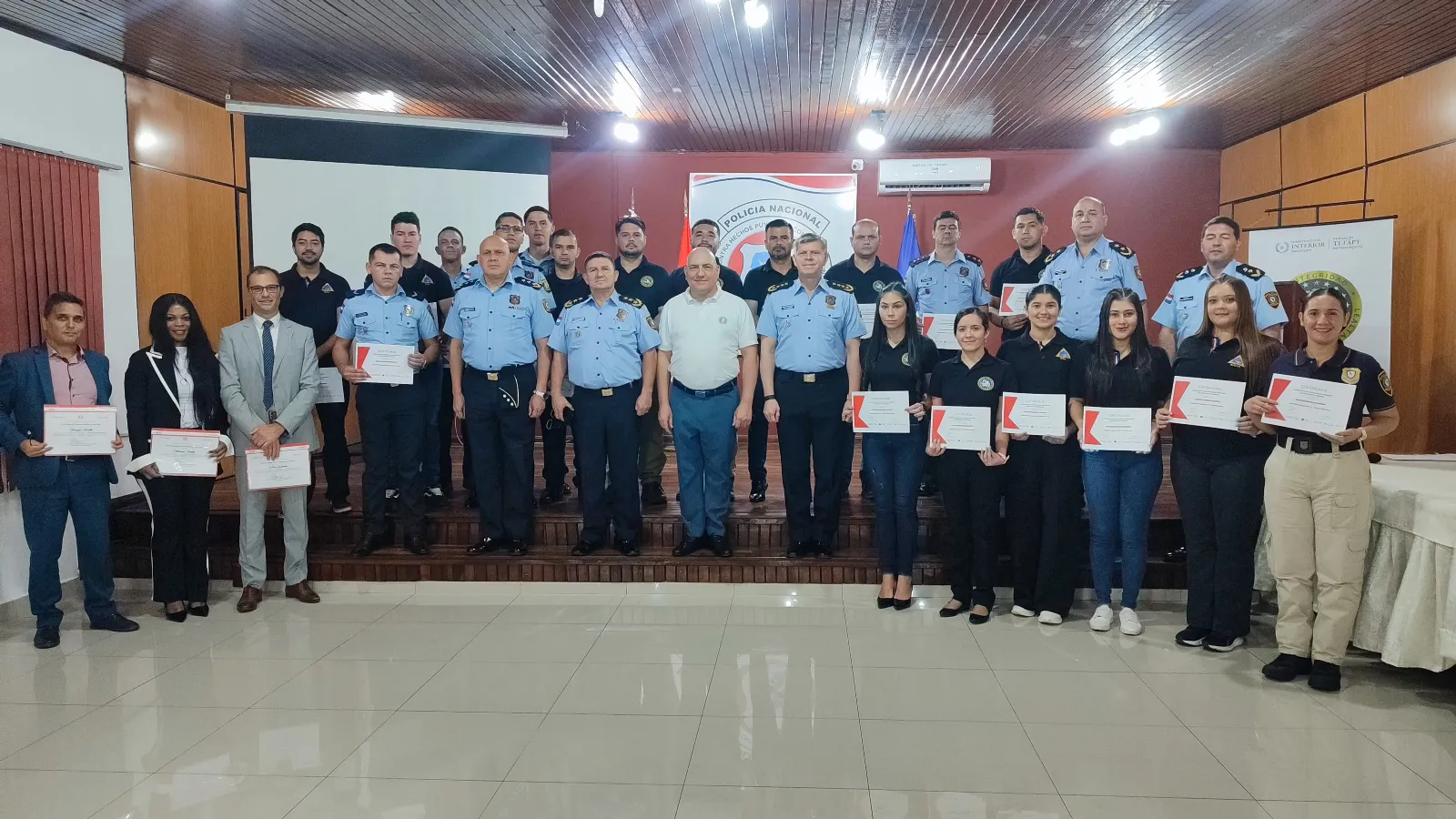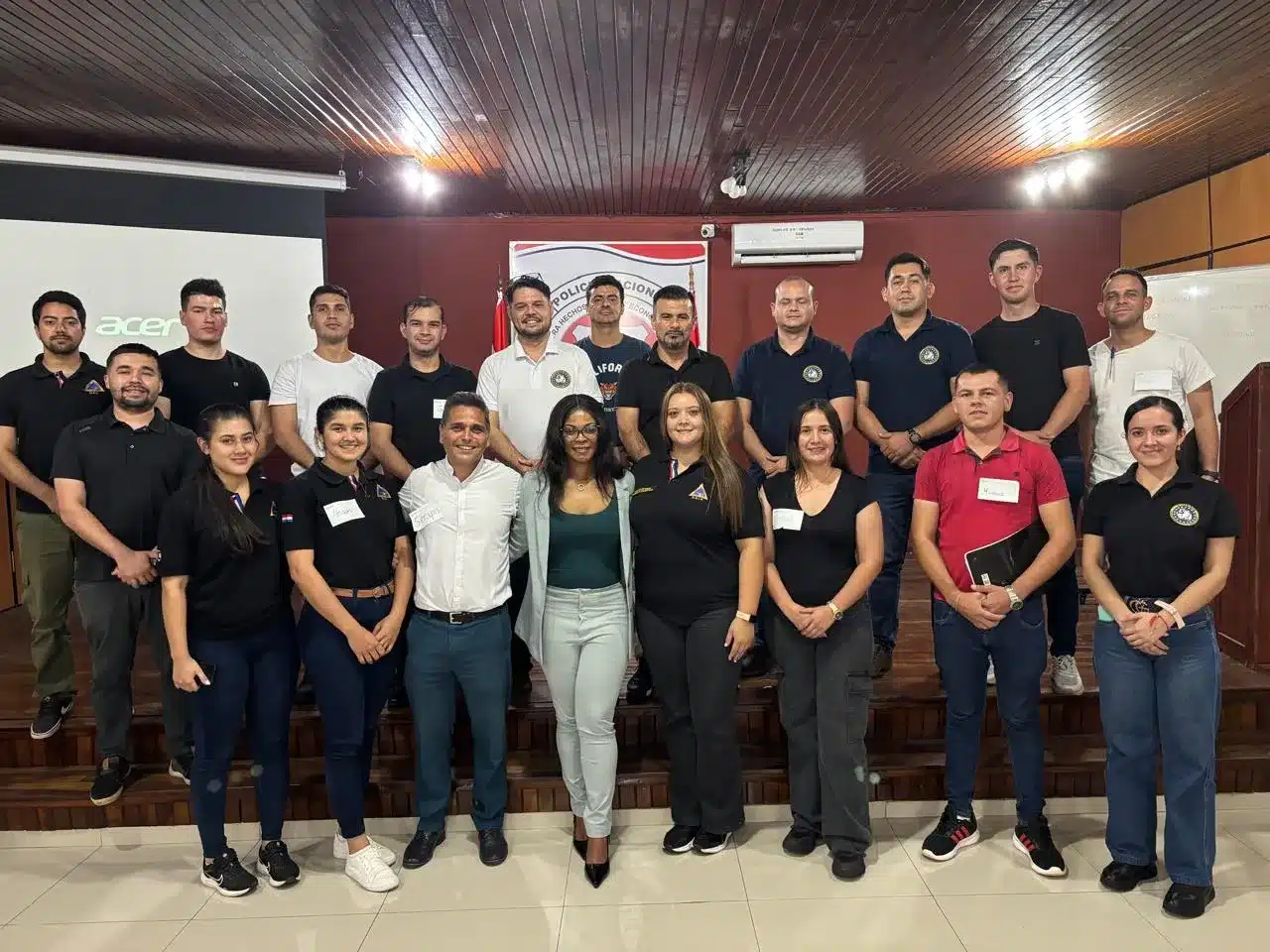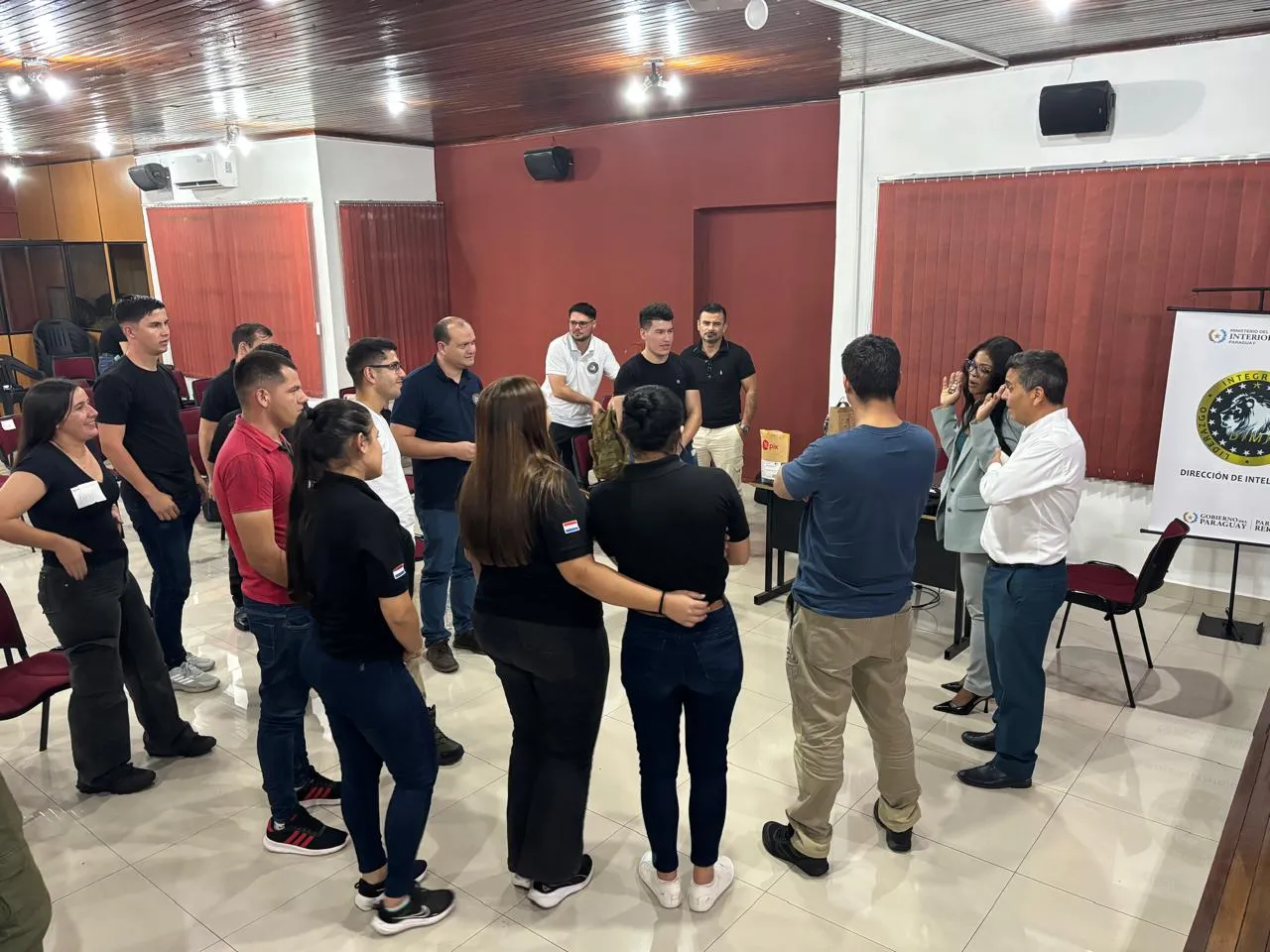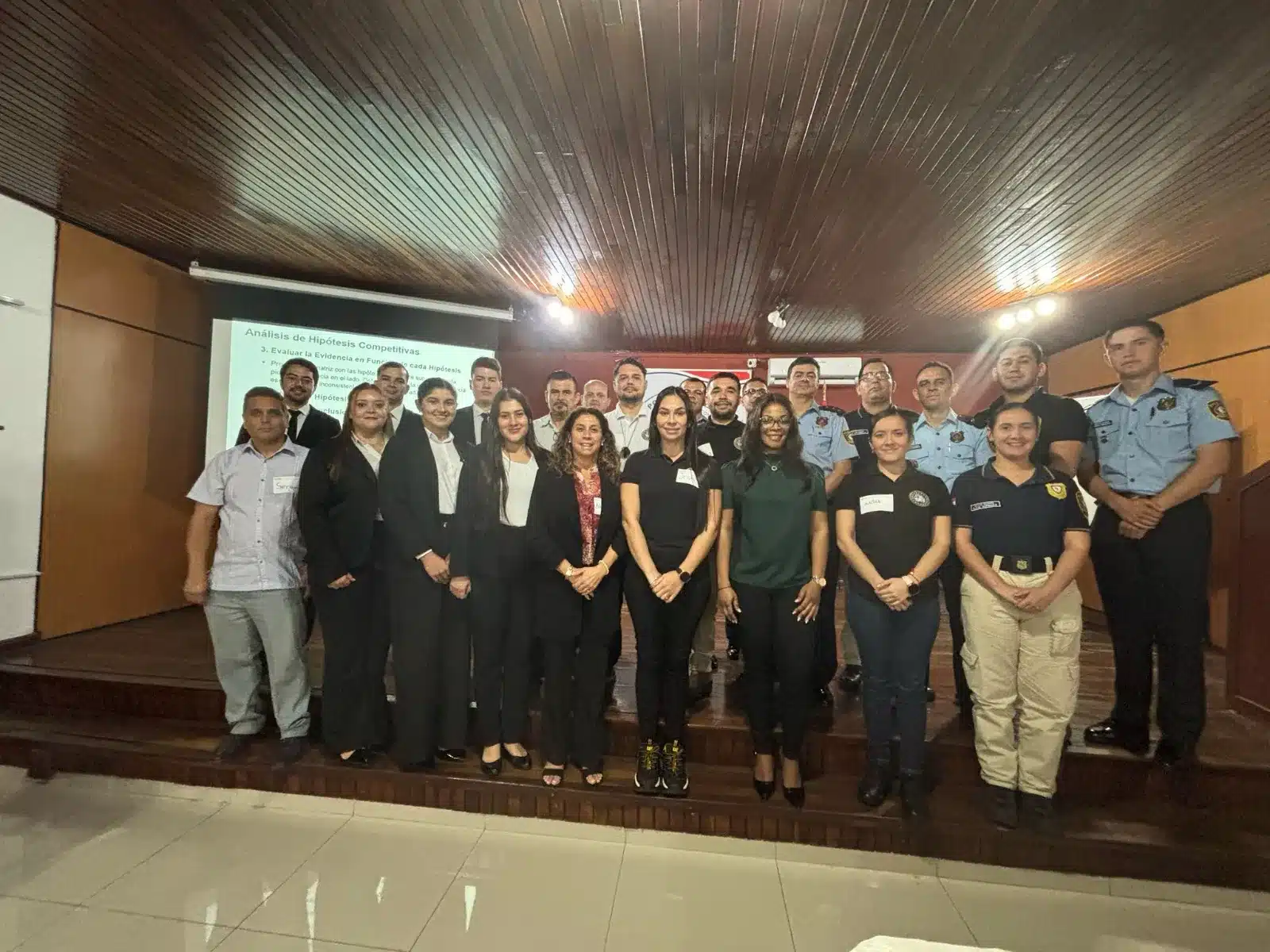
The Technical Assistance Program – Expert Deployment Mechanism (TAP-EDM) initiative, implemented by Alinea International and funded by Global Affairs Canada, works collaboratively with Canadian Technical Expert Shanae Smith and the Ministry of the Interior in Paraguay to provide technical assistance that enhances the Ministry’s criminal intelligence team capabilities.
In this blog, Shanae shares highlights of her support to Paraguay in local law enforcement, delivering hands-on intelligence training both virtually and on the ground. It was initially published on the International Association of Crime Analysts (IACA) website, a professional organization that supports crime analysts, law enforcement professionals, and researchers by providing resources, training, and knowledge exchange platforms. With over 4,000 members worldwide, IACA represents a global community of professionals dedicated to advancing criminal intelligence practices, with Canada among the top countries for membership.
Building Safer Communities Through Global Collaboration: A Canadian Contribution to Intelligence Training in Paraguay
By Shanae Smith, Certified Criminal Intelligence Analyst.
There’s something powerful about seeing your skills make a difference thousands of miles from home. As a Criminal Intelligence Certified Analyst, I had the unique opportunity to represent Canada in Paraguay through the TAI65 project, part of the Government of Canada’s TAP-EDM initiative. My role was to support local law enforcement by delivering hands-on intelligence training, both virtually and on the ground.
The goal? To strengthen crime analysis capabilities and promote smarter, more strategic policing. From bustling classrooms in Asunción to remote online sessions with investigators across the country, each moment reinforced just how essential strong data analysis is in the fight against crime—and how meaningful international partnerships can be.
This work was made possible through the Technical Assistance Partnership – Expert Deployment Mechanism (TAP-EDM), a Global Affairs Canada-funded initiative managed by Alinea International. TAP-EDM connects Canadian experts with institutions in partner countries to help strengthen governance, human rights, and sustainable development. Through deployments like mine under the TAI65 Paraguay project, TAP-EDM supports lasting institutional change by promoting the transfer of knowledge and Canadian values through peer collaboration. You can learn more about TAP at www.tap-pat.ca.
Why crime analysis matters
Crime analysis is so much more than working with data—it’s about turning numbers and patterns into real-world solutions. It gives law enforcement the tools to spot trends, allocate resources more effectively, and make informed decisions that ultimately lead to safer communities. For countries like Paraguay, which face evolving criminal threats, building this capacity is a game-changer.
A training experience rooted in impact
Through a combination of virtual and in-person sessions, we worked side by side with investigators to explore topics like strategic crime analysis, intelligence-led policing, and how to apply analytical thinking to real-life investigations. The enthusiasm and commitment of the participants were inspiring. Many were eager to adopt new tools and approaches, and we saw immediate shifts in how they viewed data—as something that empowers, rather than overwhelms.
Canada’s commitment in action
This initiative was about more than training—it was about advancing Canada’s core international development priorities across three key themes:
- Gender Equality: We made sure to weave gender-sensitive approaches into every aspect of the training. This meant discussing how crime affects women and girls differently, as well as how inclusive intelligence practices can create safer spaces for everyone.
- Environmental Sustainability: While not a primary focus, our conversations often touched on the intersection of organized crime and environmental harm—like illegal mining or deforestation—highlighting the need for integrated analysis.
- Inclusive Governance and Human Rights: At its heart, intelligence work must support transparency, fairness, and accountability. By introducing analytical frameworks rooted in ethical practice, we reinforced the importance of upholding democratic values in law enforcement.
A shared success story
What stood out most was the collaboration. This wasn’t about one-way teaching—it was a shared learning experience. Local partners brought insight, context, and passion to the table, while Canadian support helped create a platform for sustainable growth. Together, we built stronger foundations for public safety in Paraguay—proof that when countries collaborate, everyone benefits.
Representing Canada on this project was an incredible honour. It showed me that global partnerships, built on trust and shared goals, can make a real difference. And it reminded me that crime analysis isn’t just about solving crimes—it’s about building communities where people feel safe, seen, and supported.




